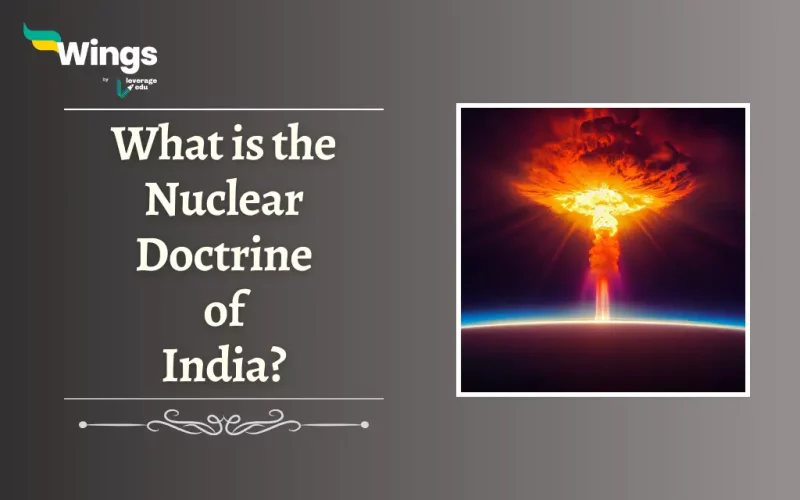The way a nuclear state should use its nuclear weapons at times of war is in the Nuclear Doctrine of a state. In order to keep a check on deterrence and hostility, it is important to have a Nuclear Doctrine. Moreover, it clearly expresses the intentions of a State. Furthermore, the Nuclear Doctrine of India began in the late 1940s. Moreover, with the advice of Homi J. Bhabha, the Nuclear program in India began. However, Pt. Jawaharlal Nehru was against nuclear power and made comprehensive nuclear disarmament. Read on to learn more in detail about the Nuclear Doctrine of India, its 3 Pillars and the Nuclear Command Authority in India.
India’s Nuclear Doctrine
Additionally, here are some points that define the Nuclear Doctrine of India:
- India keeps constructing and maintaining a reasonable minimum deterrent.
- The stance of “No First Use,” makes India use its nuclear weapons at times of attack on Indian territory or Indian forces but only as retaliation.
- In addition, the retaliation of Indian nuclear will impose unacceptable damage.
- Through the Nuclear Command Authority, the leading civilian government approves any nuclear retaliatory attack.
- Moreover, if the attack is made against a non-nuclear weapon state, there will be no use of nuclear weapons.
- India can hold the option of nuclear retaliatory attack in case of attacks on Indian territory or Indian forces.
- The export of nuclear and missile-related materials and technologies witnesses stringent controls, a pause on Nuclear tests, and participation in the Fissile Material Cutoff Treaty.
- A continuous check on the discontinuation of nuclear-free weapons in the future to contribute to a nuclear-weapon-free.
Do you know? APJ Abdul Kalam, the former President of India is known as the “Missile Man.”
What is a Nuclear Command Authority?
The Nuclear Command Authority (NCA) commands, controls, and makes operational decisions concerning the nuclear weapons decisions of India.
| Body | Chair | Responsibility |
| Political Council | Prime Minister | Authorizes nuclear strike |
| Executive Council | National Security Advisor | Advises Political Council, executes directives |
What are the Three Pillars of India’s Nuclear Policy?
The 3 Pillars of India’s Nuclear Policy are as follows:
- Non-proliferation.
- Disarmament.
- Peaceful use of Nuclear energy.
Related Blogs
This is all about the Nuclear Doctrine of India. For more content related to the different states of India, visit our Civics and Polity archives.
 One app for all your study abroad needs
One app for all your study abroad needs













